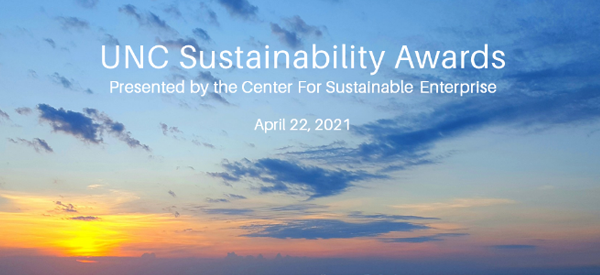
Don't miss this compelling keynote session by Chloe Hakim-Moore, an internationally acclaimed entrepreneur, a Forbes 30 Under 30 honoree, and TEDx speaker, on April 10, 2025, at 4 PM.

As a magnet for both population and employment growth, North Carolina has a propitious opportunity to create an inclusive and equitable entrepreneurial and small business ecosystem to support the state’s newfound prosperity.

Kenan Institute experts, industry leaders and researchers came together to discuss the broad societal impact of entrepreneurs – including entrepreneurial ecosystems, funding and America’s untapped assets – and some of the biggest trends currently seen in the industry.
The sixth annual conference will convene thoughts leaders from academics, industry and government to debate the most challenging current issues in the field of entrepreneurship and set the agenda for future research and policy.

As long-standing leaders in sustainability, the Center for Sustainable Enterprise and the Kenan Institute of Private Enterprise are proud to host the University of North Carolina Sustainability Awards. These awards recognize the leadership of North Carolina Business in protecting and promoting the state’s natural resources.

The Corporate Social Justice Imperative
Historically, most businesses have attempted to stay on the sidelines of controversial issues to avoid alienating customers and limit internal discord. But the COVID-19 pandemic (which has disproportionately affected people of color) and rising racial tensions have increased awareness of systemic racism in the U.S. In this Kenan Insight, we explore how business leaders are increasingly taking a stance on diversity and inclusion issues through both internally and externally focused actions and policies.

Can Social Entrepreneurship Deliver Impact?
Major strides have been taken in recent years to push toward more sustainable investing practices, yet it remains to be seen if such initiatives are actually meeting their goals. In this Kenan Insight, we look at the challenges of both implementing and measuring the effectiveness of social entrepreneurship and impact investing.
Greg Brown and Olga Hawn discuss the rise of B Corporations and entrepreneurs who are using sustainability as a key selling point in this New York Times article.

This paper conceptualises the array of social practices as a continuum of social innovation and empirically demonstrates variation not captured by legal designation. Using a survey from the US state of North Carolina, this paper examines how organisations across the continuum responded to the 2008 economic recession.
